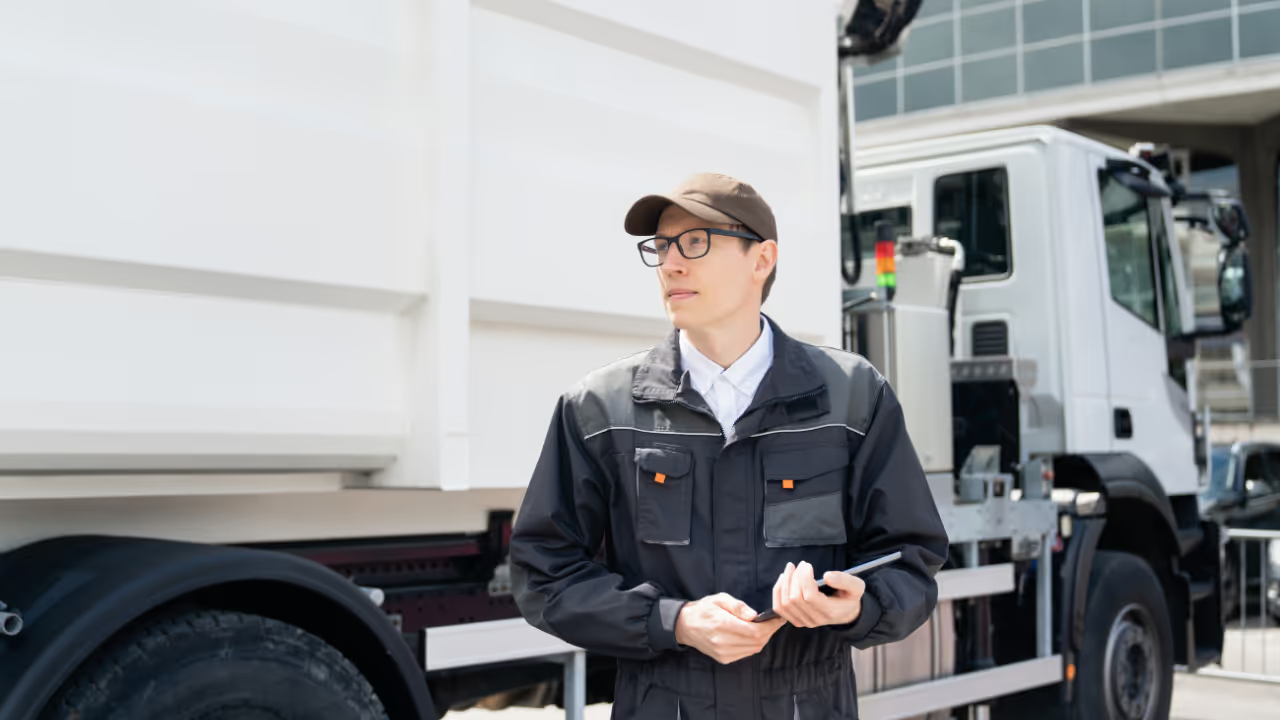If you’ve been in this business long enough, you know one simple truth: things break, get stolen, or just stop working at the worst possible time. You can be running smoothly all week, then bam—someone backs into your loader, or your trailer disappears off a job site overnight.
That’s why insurance matters. Not because you love paying premiums (nobody does), but because your equipment is your livelihood. Without it, trucks don’t roll, dumpsters don’t move, and the bills don’t get paid.
Let’s break down what you actually need to know about insuring your gear, no insurance-speak, no fluff. Just the stuff that keeps you protected and back on the road.
What Kind of Coverage You Actually Need
Insurance can sound like alphabet soup—GL, PD, IM—but here’s what really counts for haulers:
- General Liability: Covers you if your work causes damage or injury. For example, you drop a dumpster and it rolls into a customer’s fence. This one’s your safety net.
- Physical Damage: This covers your own stuff—trucks, trailers, dumpsters, loaders—against collisions or bad weather. If a storm drops a tree on your roll off truck, that’s physical damage territory.
- Inland Marine: Weird name, but it’s the policy that protects equipment when it’s on the move or offsite. Let’s say your skid steer gets stolen from a construction yard—that’s inland marine in action.
- Workers’ Comp: If you’ve got a crew, this one keeps everyone (and your business) covered in case of injuries.
You don’t need to be an expert, but you should know which bucket your equipment falls into. Otherwise, you’ll find out the hard way when something happens and your claim gets denied.
Common Mistakes Haulers Make
A lot of us figure, “That truck’s old, it’s paid off, no big deal.” But if that “no big deal” truck gets totaled, guess what? You’re paying for the replacement out of pocket.
Here are a few more misses we see all the time:
- Underinsuring old equipment. Paid off doesn’t mean worthless. If it’s still making you money, it still needs protection.
- Not updating coverage when you add new dumpsters or trucks. A new piece of equipment should trigger a call to your agent, not just your mechanic.
- Forgetting subcontractors or rented gear. If it’s under your name or your logo, it’s your problem if it breaks (unless contract says it).
- Ignoring small stuff like attachments and tech. Tablets, GPS units, or that laptop you use for routing—those things add up.
Bottom line: insurance only works if it reflects what you actually have.
How to Keep Track (and Make Claims Easier)
Here’s where a little bit of organization can save you a ton of headaches. If something gets damaged or stolen, the faster you can prove ownership and value, the faster your claim moves.
Start with the basics:
- Snap photos of all your equipment, including serial numbers.
- Keep a record of maintenance logs and receipts.
- Store digital copies somewhere safe (not just in a glovebox that smells like diesel and coffee).
If you’re already using dumpster tracking software or dispatcher software, you’ve got a head start. Those tools help you log where equipment is, when it was moved, and who had it last, gold when your insurance company starts asking questions. It’s not magic, but it’s proof, and that makes life a lot easier when you’re filing a claim.
Do a Quick Coverage Check Once or Twice a Year
Think of your insurance review like an oil change; it’s not fun, but skip it too long and things get expensive. Once or twice a year, take 30 minutes to:
- Review your coverage with your agent.
- Update the value of your equipment.
- Add or remove anything that’s changed.
Your insurance agent should know your business almost as well as your mechanic does. They don’t need to ride along in your roll off truck, but they should know what kind of work you do, what you haul, and how often your gear’s on the move.
A quick call can save you thousands later.
Protect What Keeps You Moving
At the end of the day, insurance is just one more tool to keep your business rolling. You can’t prevent every breakdown or theft, but you can make sure you’re not left holding the bag when it happens.
So take a little time, get your coverage right, and use tech to stay organized. Because when your iron’s protected, your routes run smoother, your stress drops, and you can focus on what you actually do best, keeping those dumpsters moving.






%20(1).png)

.jpg)